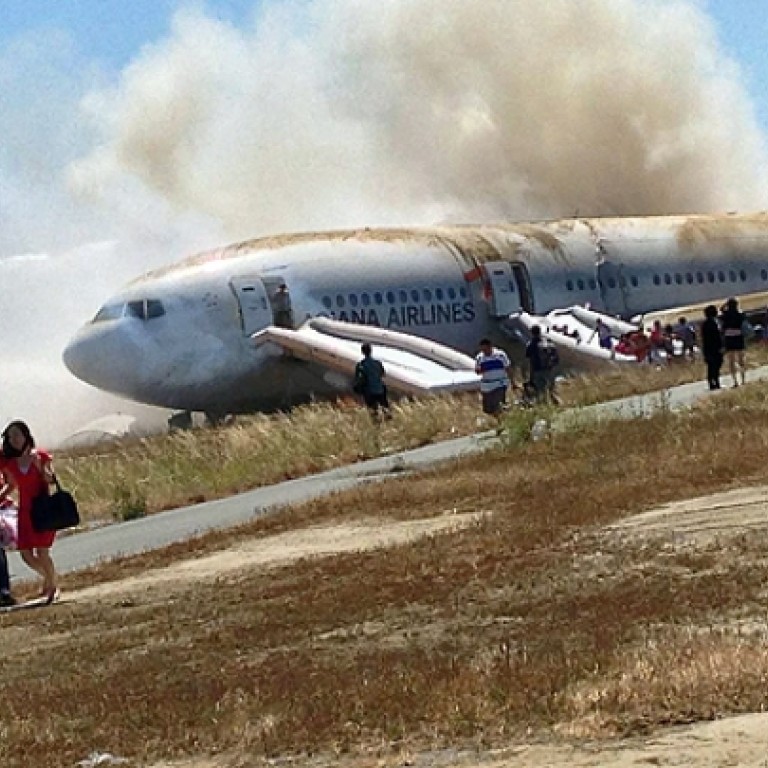
Asiana Airlines shares sink 6pc after crash
Shares in South Korea’s Asiana Airlines shed as much as 6.4 per cent on Monday after one of its passenger jets crashed at San Francisco airport over the weekend, killing two people and leaving 182 injured.
Shares in South Korea’s Asiana Airlines shed as much as 6.4 per cent on Monday after one of its passenger jets crashed at San Francisco airport over the weekend, killing two people and leaving 182 injured.
The losses come as analysts warned that Saturday’s tragedy could have a long-term negative impact on the firm as investigators look into what happened, with suggestions that it was caused by pilot error.
In early afternoon trade the firm’s share price sank to 4,790 won (HK$32.50) before picking up slightly to sit at 4,845 won, down 5.37 per cent.
The incident was the carrier’s first fatal passenger jet crash since its worst ever accident in 1993, when a Boeing 737 flew into a mountain in southwest South Korea, killing 68 passengers and crew.
It will also likely dent the business of the country’s second-largest air carrier regardless of the cause of the accident, analysts said.
“You can’t rule out the possibility that such a fatal accident that hurts the firm’s reputation will sap demand for Asiana’s services down the road,” said Kang Dong-Jin, analyst at HMC Investment Securities.
Potentially huge insurance payouts to victims and for the aircraft will raise future premiums and increase financial burdens, he added.
On Sunday the Seoul-based carrier’s CEO, Yoon Young-Doo, said “currently we understand that there are no engine or mechanical problems” with the plane -- a Boeing 777 aircraft bought in 2006.
But even if the accident turns out to be caused by mechanical problems involving the Boeing aircraft instead of Asiana pilots’ errors, it will dampen overall sentiment among airline customers, said Jay Ryu, analyst at KDB Daewoo Securities.
“Although the cause of the accident has not been revealed yet, the firm’s first major accident in 20 years will inevitably cause damage on its business both in the short and long term.” he said.
Some commentators also said the company’s decades-long efforts to expand its presence in China will have taken a blow owing to the fact that the two fatalities and a large number of the injured were Chinese.
With a fleet of 79 aircraft including 11 cargo planes, the company has focused on short-haul routes to China and Japan while its bigger rival Korean Air dominates flights to Europe and America.
Asiana currently flies to 20 cities across China and in 2011 made a $1.8 billion order for six Airbus A380 superjumbos in a move seen aimed at cashing in on booming demand from China and the rest of Asia.
“About a half of the firm’s passengers are Chinese who transit in the South,” said Shin Ji Yoon, an analyst at KTB Investment & Securities.
“You can’t say that the impact will be limited to a short-term given Chinese have plenty of alternatives for transit flights other than Asiana,” Shin said.
